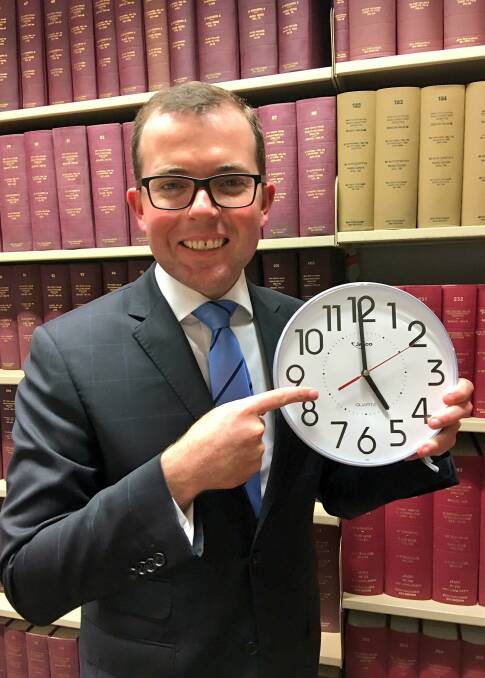
DAYLIGHT saving in NSW will end a month earlier next year if a Bill introduced in State Parliament on Wednesday is successful.
Subscribe now for unlimited access.
$0/
(min cost $0)
or signup to continue reading
Mr Marshall confirmed that a Private Members Bill – the Standard Time Amendment (Daylight Saving Period Reduction) Bill – was introduced in the State’s Upper House today.
If successful, the legislation will bring the end of daylight saving forward one month, from the first Sunday in April to the first Sunday in March each year. The change would take effect for the upcoming daylight saving period
“The Bill essentially reverses the extension to daylight saving which was pushed through the parliament without a mandate in 2007,” Mr Marshall said.
“I’ve been working on this legislation with my colleagues from country NSW, who are also being lobbied by their communities for this change.
“While the issue of daylight saving always provokes a passionate debate – some people love it and some want it gone completely – most people agree that the last month is a pain, it simply drags on for too long.
“As I move around the electorate I am often asked about this issue and the further west and north I go the more intense the feeling is.”
Many Northern Tablelands communities are situated along or very near the Queensland border and Mr Marshall said there was considerable angst about the length of daylight saving.
“For people on or near the border it’s confusing and difficult to live, work and do business across two different time zones,” he said.
“While this legislation won’t satisfy everyone involved in the daylight saving debate, it will remove the final month of daylight savingand alleviate a lot of the problems.
“I think it’s a good comprise. We’ll still have five months of daylight saving but the final and most troublesome month will be removed.”
Mr Marshall said he expected the Bill to be debated in parliament before the end of the year.
“I’m looking forward to the debate and hopefully convincing enough MPs to support this practical and long sought-after change for country people,” he said.
Daylight saving begins on Sunday morning, which means all clocks need to be turned forward one hour.

